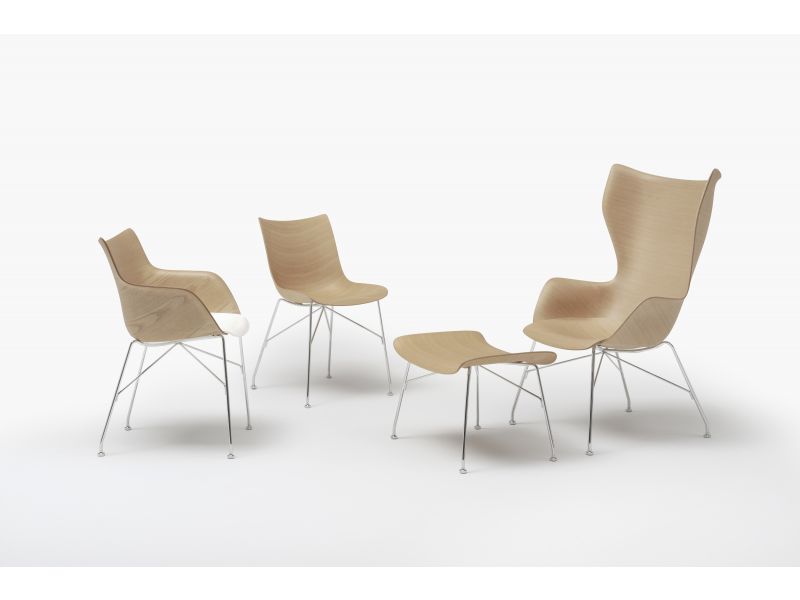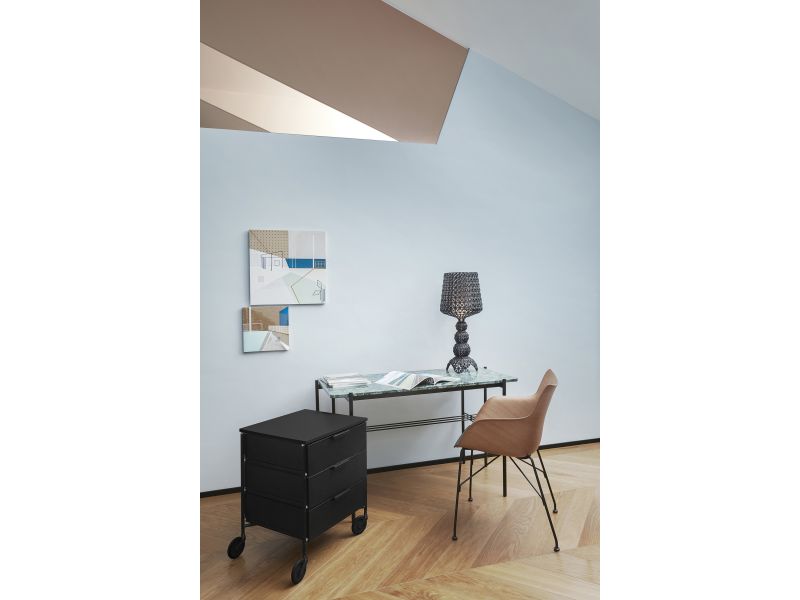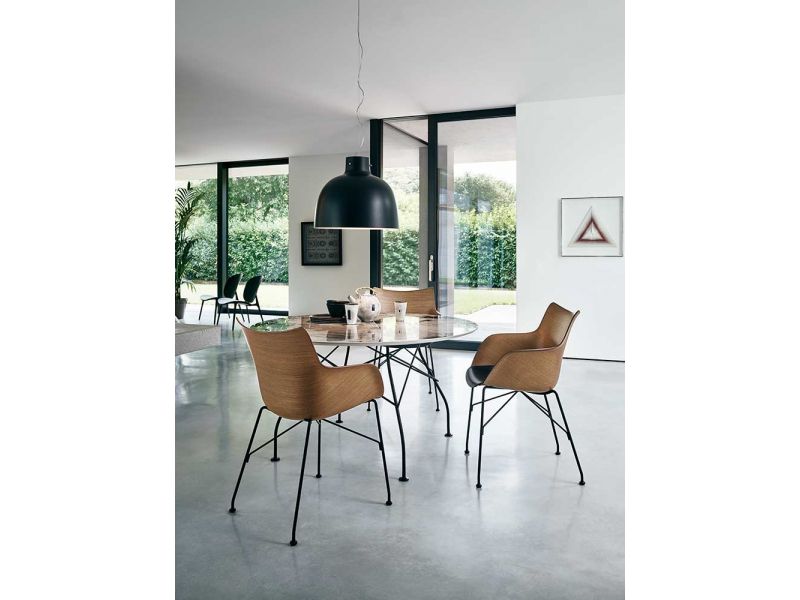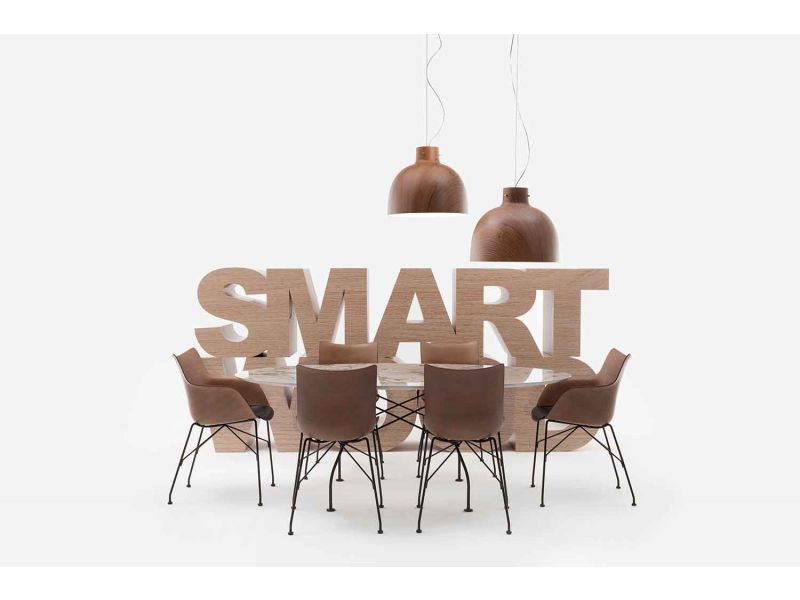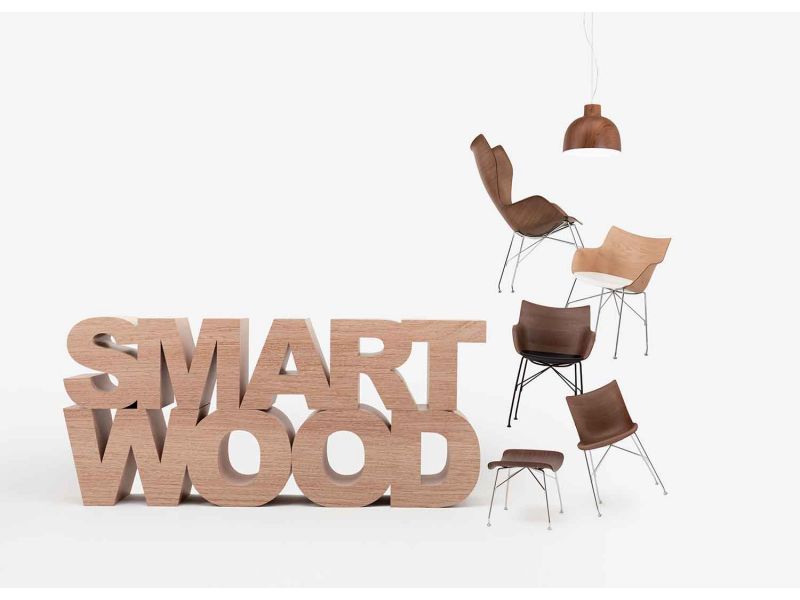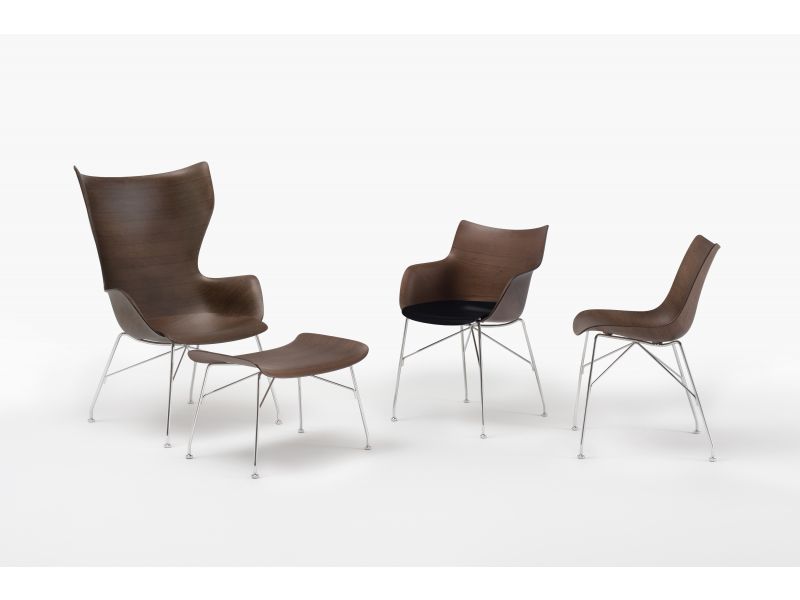
Sustainability
Kartell has obtained FSC (Forest Stewardship Council) certification for the Smart Wood collection. The FSC® mark identifies products made with wood sourced from forest managed in a responsible fashion, in line with rigorous environmental, social and economic criteria. The forests are controlled and assessed independently in conformity with the standards (principles and criteria of best practice forest management) established and approved by the Forest Stewardship Council® a.c. with the participation and consent of all stakeholders.The wood comes entirely from FSC certified forests, thus guaranteeing the origin and correct exploitation of forest resources. Consumers are fully guaranteed about the origin of the materials purchased. The FSC contribution is mainly aimed at promoting sustainable management of all types of forests, combating deforestation, restoring damaged forests and significantly increasing reforestation andthe growth of woods everywhere.
Pricing
Starting from $710 goes up to $2755
Notes
If needed, video also available to be added on product pages
70 Years of ongoing research and exchange with the great designers, with the aim of pursuing beauty and absolute quality.
70 years of market success, of cooperation and partnerships, of events and projects destined for sale and communication.
Today, Kartell is the perfect synthesis of its past and its ongoing projection into the future, combining the great heritage of corporate culture with the desire to explore new paths and engage in new experiences dominated by an intense passion for creation.
Founded by Giulio Castelli in 1949, in the early years Kartell took its first steps to produce the distinctive design that would come to epitomise the 'Made in Italy’ label. In 1988 the company was acquired by Claudio Luti, the son-in-law of Giulio and Anna Castelli who had a background in fashion. The sensibility that Luti had developed under the Versace fashion house, with a love for perfection and tasteful design, heralded a new start for the brand. Luti sought collaborations with designers and architects like Philippe Starck, Ron Arad, Antonio Citterio, Ferruccio Laviani, Piero Lissoni, Patricia Urquiola, Mario Bellini, Alberto Meda and Vico Magistretti, who were responsible for those products that soon came to symbolise the brand. The fresh approach to materials dictated the new direction and brought real turning points for Kartell: studying, manipulating and enriching materials resulted in an end product which offered unprecedented characteristics. The turning point came when, after years of research and thanks to a revolutionary innovation, in 1999 Kartell became the first company in the world to use polycarbonate to produce furnishing items. The result was La Marie, a completely transparent chair with modern, minimalist design which paved the way for Louis Ghost, still one of Kartell’s best sellers today. From this moment on, the company developed and explored the theme of transparency that has made it unique and original, continuing its research into the study of surfaces and shapes, starting with the use of new technologies and high-performance materials that have made it possible to create products like nothing ever created before. Alongside the habitat division, Kartell relaunched its lighting division, writing a new chapter in the history of lighting design. Kartell today is a company that looks to the future, with Claudio Luti sharing the helm with his children Lorenza and Federico, who joined the firm from different professional backgrounds following their university studies. Today Lorenza is Marketing and Retail Director and Federico Commercial Director. The company has expanded its horizons with new divisions and new product families, introducing new lines ranging from the soft line to another specifically designed for outdoors, as it continues to move with the times and evolve, also employing non-plastic materials and experimenting with new technologies.

